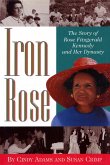Jacques life on the farm, along with his other adopted siblings, is very abusive. The only overt love Jacques receives is from Elaine, Damon's wife, who visits him and his adopted mother, Lorraine.
After Lorraine mysteriously dies, Pierre, the adoptive father, bans Elaine from the farm. Thereafter, Pierre lives in a drunken stupor that motivates the children to leave. Jacques goes to Paris to find Elaine but to no avail. Left homeless and having to steal for his food and clothing, Jacques' life becomes a fight for survival. The only jobs he can find are in butcher shops. Years later, his oldest brother, Antoine, accidentally reenters his life. One of the only happy times of Jacques existence is when he meets and falls in love with Paulette and she with him. Unfortunately, Paulette is raped and murdered and Jacques vows revenge.
Monique marries Benet Jabot who is a Member of Parliament and they have a daughter, Catherine. Benet is known as a compassionate and liberal-minded man although belonging to nobility. Their story gives insight to the political and economic atmosphere and is interwoven throughout the book as Benet and Monique worry about their country's conditions under King Louis XVI's reign. Doctor Joseph Guillotine and Benet develop a close friendship as they share their concerns for France.
Antoine is head of the gendarmes and gives Jacques, and Jacques only friend, Paul, jobs as jailers in the prison system. Jacques eventually becomes an executioner known as 'The Iron Rose' due to his innate compassion for others thereby keeping the blade sharp to ensure a swift death.
Wars deplete the government coffers and exacerbate France's economic woes leading to provincial unrest known as 'The Great Fear' in which no one is immune. Greed deafens and blinds the aristocracy and revolution prevails.
Jacques marries Yvette who introduces him to the concept of God. He explores the subject of God with the prison chaplain, Father Lamont, and grows discovers his own spirituality. Father Lamont meets Elaine on her deathbed in a hospital. While listening to her story, the priest realizes her connection with Jacques and reunites them. Elaine tells Jacques the story of his beginnings, and it is then that Jacques realizes he was the one who executed his biological mother and stepfather. Father Lamont counsels Jacques through his remorse and grief, not only for his role in his real mother's death but also for the loss of Elaine.
After several meetings with Doctor Guillotine to try to understand why the revolution was continuing after the King and Queen had been beheaded, Jacques decides to move to England in order to find peace in his soul as a farmer. The three couples, Jacques and Yvette with their son, Antoine and his wife, Donai, and Paul and Catherine with their daughter find peace outside of Portsmouth. The final scene is Jacques' funeral in 1829.
Dieser Download kann aus rechtlichen Gründen nur mit Rechnungsadresse in A, B, BG, CY, CZ, D, DK, EW, E, FIN, F, GR, HR, H, IRL, I, LT, L, LR, M, NL, PL, P, R, S, SLO, SK ausgeliefert werden.









